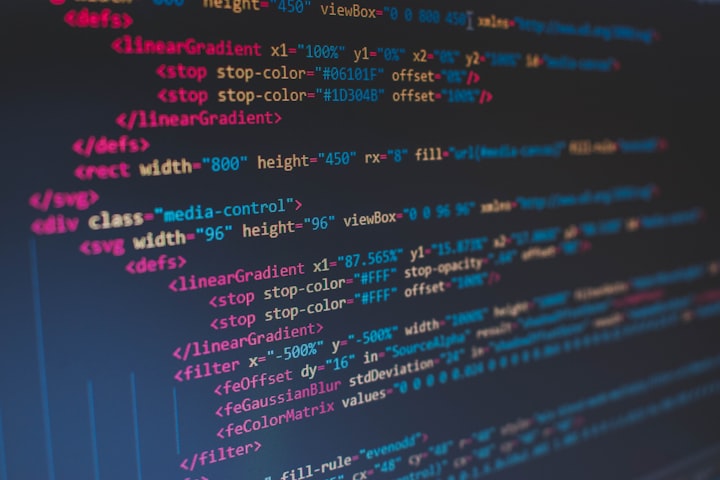What are some of the best ways to learn programming?
Navigating the Coding Odyssey: A Comprehensive Guide to Mastering Programming Skills and Thriving in the Developer's World

Learning programming can be a rewarding journey, and there are various approaches to suit different learning styles. Here are some effective ways to learn programming:
Online Courses:
Platforms like Coursera, edX, Udacity, and Codecademy offer interactive courses in various programming languages. They often include video lectures, coding exercises, and quizzes.
Interactive Coding Platforms:
Websites like HackerRank, LeetCode, and Exercism provide coding challenges and problems to solve, allowing you to practice and improve your coding skills.
Books:
Many excellent programming books are available for beginners and advanced learners. Some popular titles include "Clean Code" by Robert C. Martin and "Eloquent JavaScript" by Marijn Haverbeke.
Programming Bootcamps:
Coding bootcamps are intensive, short-term programs designed to teach programming skills quickly. They often focus on practical, real-world applications.
Online Tutorials and Documentation:
Many programming languages have extensive online documentation and tutorials. Websites like Mozilla Developer Network (MDN) for web development or the Python official documentation can be valuable resources.
Project-Based Learning:
Start a project that interests you. Building something tangible, like a website, app, or game, can provide hands-on experience and keep you motivated.
Join Coding Communities:
Participate in online coding communities such as Stack Overflow, GitHub, or Reddit. Engaging with others, asking questions, and seeking feedback can enhance your learning.
Attend Coding Meetups and Conferences:
Local meetups and conferences provide opportunities to network with other programmers, learn from experts, and stay updated on industry trends.
Online Video Tutorials:
Platforms like YouTube have countless tutorials covering various programming topics. Channels like Traversy Media, The Net Ninja, and Corey Schafer offer quality content.
Practice Regularly:
Consistent practice is crucial for mastering programming. Set aside dedicated time each day or week to code and reinforce what you've learned.
Online Code Editors:
Use online code editors like repl.it or CodePen for quick experimentation and sharing your code with others.
Version Control:
Learn the basics of version control systems like Git. Platforms like GitHub provide a collaborative environment and a place to showcase your projects.
Understand Computer Science Fundamentals:
Gain a foundational understanding of algorithms, data structures, and other computer science principles. Books like "Introduction to Algorithms" by Thomas H. Cormen can be helpful.
Keep Up with Industry Trends:
Stay informed about new technologies and trends in the programming world. Subscribe to blogs, podcasts, or newsletters to stay up-to-date.
Remember, the key is consistent practice and a willingness to tackle challenges. It's also essential to understand the concepts rather than just memorizing code snippets. Start with a language that aligns with your goals (e.g., Python for versatility, JavaScript for web development), and as you gain proficiency, you can explore other languages and frameworks.
Code Reviews:
Engage in code reviews, either by submitting your code for review or reviewing others' code. Constructive feedback is invaluable for improving your coding skills.
Pair Programming:
Pair programming involves two programmers working together on the same code. This collaborative approach can provide insights, different perspectives, and faster problem-solving.
Online Challenges and Competitions:
Participate in coding competitions like Google Code Jam, Facebook Hacker Cup, or Codeforces. These challenges often present complex problems that can sharpen your problem-solving skills.
Contribute to Open Source Projects:
Contribute to open source projects on platforms like GitHub. It's a great way to collaborate with experienced developers, work on real-world projects, and build a portfolio.
Networking:
Attend local meetups, workshops, or conferences to network with professionals in the field. Building connections can lead to mentorship opportunities, job referrals, and a deeper understanding of the industry.
Set Realistic Goals:
Break down your learning into achievable goals. Setting small, realistic milestones will help you stay motivated and track your progress.
Learn Problem-Solving Techniques:
Programming is not just about syntax; it's also about problem-solving. Practice breaking down problems into smaller, manageable tasks and then solving them step by step.
Stay Curious and Explore:
Don't limit yourself to the basics. Explore different programming paradigms, frameworks, and tools. Stay curious and be open to learning new things.
Build a Portfolio:
Create a portfolio showcasing your projects and achievements. It serves as a tangible representation of your skills and can be shared with potential employers or collaborators.
Stay Patient and Persistent:
Learning to program takes time and effort. Be patient with yourself and persist through challenges. The ability to overcome obstacles is a crucial skill in programming.
Take Breaks and Avoid Burnout:
Learning programming can be intense, so it's important to take breaks to avoid burnout. Find a balance between focused learning and relaxation.
Utilize Online Communities:
Engage with online forums, discussion groups, and social media communities dedicated to programming. Platforms like Stack Overflow, Reddit (e.g., r/learnprogramming), and Discord have active communities where you can seek help and advice.
Explore Different Learning Platforms:
If you find a particular learning platform isn't resonating with you, don't hesitate to explore others. Different platforms use different teaching styles, and finding the one that suits you best can make a significant difference.
Remember that learning to program is a dynamic and ongoing process. Embrace challenges, celebrate your successes, and enjoy the continuous learning journey. As you gain more experience, you'll become more confident in your abilities and be better equipped to tackle increasingly complex projects.
About the Creator
Danielle Steel
Professional Writer






Comments
There are no comments for this story
Be the first to respond and start the conversation.